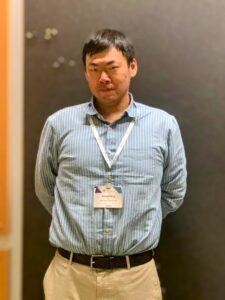 Washington State University (WSU) (Pullman, Washington, USA) postdoctoral researcher Wangcheng Liu has received a Washington State Research Foundation fellowship for his work in the chemical recycling of plastics.
Washington State University (WSU) (Pullman, Washington, USA) postdoctoral researcher Wangcheng Liu has received a Washington State Research Foundation fellowship for his work in the chemical recycling of plastics.
Liu, who received his PhD at WSU in materials science and engineering, works in WSU’s Composite Materials and Engineering Center. He is conducting research on how to turn post-consumer plastics into functional building blocks for environmentally friendly and useful products such as coatings, binders, and polymeric concrete.
The Washington Research Foundation supports groundbreaking research and supports early stage technology companies. Every year, the foundation provides fellowships to about 10 Washington postdoctoral researchers for work that has the potential for real-world impact. The fellowships include three years of salary support.
In spite of the fact that plastic waste is well known as a large environmental concern, people still like to buy and use it, and companies continue to produce more than 400 million tons (800,000,000,000 lbs.) annually, says Liu. In the U.S., less than 10% of it gets recycled, and more than 75% of it ends up in landfills where it takes as long as 500 years to degrade.
“We love plastics. That’s why we need to consider how we can handle them,” says Liu. “Our earth is pretty much sinking in a muck of plastic waste.”
Most plastics, however, can’t be recycled easily because of the complexity of the collected waste. If a variety of plastics are melted together for recycling, the recycled plastic product ends up being of such poor quality that it can’t be used for much of anything, according to Liu.
As part of the three-year fellowship, Liu will be working to develop eco-friendly ways to convert particularly hard-to-recycle plastic waste into waxes and then into building blocks for polymeric products such as coatings, asphalt binders, or concrete. Liu will use a variety of methods to chemically modify the wax and cure it with other resins to develop new polymeric materials. He also wants to convert the plastic waste so that instead of having a lifetime of a day, it can become part of building and engineering infrastructure that lasts for a decade.
“The main objective is to rebuild polyolefins from plastic waste into competitive materials targeting long-term durable applications,” he says.
As part of the project, Liu will also consider the cost and feasibility of his solutions, which he says are key to plastics recycling. He and his colleagues also will use eco-friendly and low-carbon methods of chemically converting plastics.
Source: WSU Insider, https://news.wsu.edu.